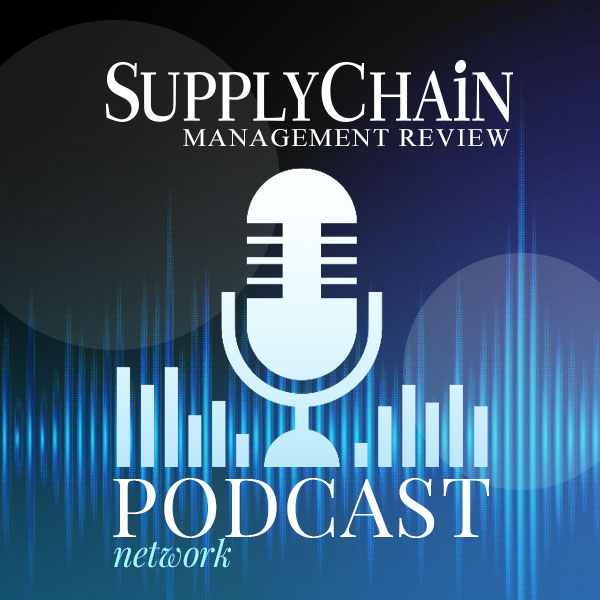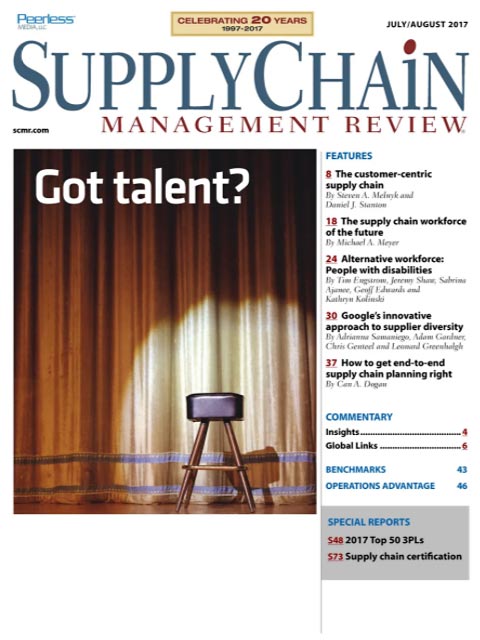Sorry, but your login has failed. Please recheck your login information and resubmit. If your subscription has expired, renew here.
July-August 2017
A few years ago, a Harvard Business Review cover posed the question: What’s the secret to winning in the global economy? The answer: Talent. Browse this issue archive.Need Help? Contact customer service 847-559-7581 More options
Chris Caplice remembers a time when supply chain professionals got the necessary credentials and then proceeded to enjoy their careers without needing much additional education or training. “Those days are gone,” says Caplice, executive director of the MIT Center for Transportation and Logistics. “Credentials are no longer a ‘one stop and done’ kind of thing, like degrees have historically been. Now it’s a continual, lifelong learning journey.”
As part of that lifelong journey, supply chain professionals are earning certifications, getting credentialed, earning degrees, and taking online courses that help them stay current on specific topics and applications. As the supply chain industry becomes more complex—and as technology, data, analytics and the Internet of Things (IoT) continue to have an impact on the space—that coursework is getting more and more specific.
“The education that’s coming out now is smaller, more focused and easier to digest,” says Caplice. “Professionals can handle the education at their own pace; you no longer have to devote two to four years to getting credentialed.” This is particularly useful for existing professionals who need to get up to speed on modern technologies, applications, processes and strategies. “A lot of people who have been in the field awhile may be bit rusty,” says Caplice, “or they may have missed the boat on certain things that have [since] changed.”

This complete article is available to subscribers only.
Log in now for full access or start your PLUS+ subscription for instant access.
SC
MR
Sorry, but your login has failed. Please recheck your login information and resubmit. If your subscription has expired, renew here.
July-August 2017
A few years ago, a Harvard Business Review cover posed the question: What’s the secret to winning in the global economy? The answer: Talent. Browse this issue archive. Access your online digital edition. Download a PDF file of the July-August 2017 issue.Chris Caplice remembers a time when supply chain professionals got the necessary credentials and then proceeded to enjoy their careers without needing much additional education or training. “Those days are gone,” says Caplice, executive director of the MIT Center for Transportation and Logistics. “Credentials are no longer a ‘one stop and done' kind of thing, like degrees have historically been. Now it's a continual, lifelong learning journey.”
As part of that lifelong journey, supply chain professionals are earning certifications, getting credentialed, earning degrees, and taking online courses that help them stay current on specific topics and applications. As the supply chain industry becomes more complex—and as technology, data, analytics and the Internet of Things (IoT) continue to have an impact on the space—that coursework is getting more and more specific.
“The education that's coming out now is smaller, more focused and easier to digest,” says Caplice. “Professionals can handle the education at their own pace; you no longer have to devote two to four years to getting credentialed.” This is particularly useful for existing professionals who need to get up to speed on modern technologies, applications, processes and strategies. “A lot of people who have been in the field awhile may be bit rusty,” says Caplice, “or they may have missed the boat on certain things that have [since] changed.”
To help fill those gaps, supply chain certification extends the educational experience beyond traditional college degrees and gives individuals a way to achieve new levels of specialization and expertise. Offered by groups like APICS (“CPIM”), CSCMP (“SCPro”) and ISM (“CPSM”), along with most leading academic institutions, certifications provide coursework in areas like internal manufacturing operations, end-to-end supply chains, logistics, transportation and distribution, among others.
Whether they are developing customized programs, tailoring those programs for government use, integrating mobile options into their course offerings or helping existing professionals fill in their knowledge gaps, certifications are playing an increasingly important role in the supply chain education field.
Download a PDF of the article for the six key certification trends that are taking place right now.
SC
MR


More Executive Education
- Chicago bound
- Augmented reality’s role in upskilling the workforce
- Employees, employers hold divergent views on upskilling the workforce
- MIT CTL offering humanitarian logistics course
- AI, virtual reality is bringing experiential learning into the modern age
- Finding the Right Approach for Supply Chain Education
- More Executive Education
Latest Podcast

 Explore
Explore
Topics
Education News
- Chicago bound
- Augmented reality’s role in upskilling the workforce
- Employees, employers hold divergent views on upskilling the workforce
- MIT CTL offering humanitarian logistics course
- AI, virtual reality is bringing experiential learning into the modern age
- Predicting stockouts: Enhancing FMCG resilience through data-driven insights
- More Education
Latest Education Resources

Subscribe

Supply Chain Management Review delivers the best industry content.

Editors’ Picks





